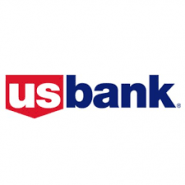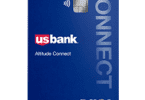One of the most confusing aspects to accepting credit and debit cards are the rules governing them in regards to what fees merchants can assess. These rules get even more confusing when you factor in all of the different debit (ATM) card networks. As I work in the payments industry, albeit on the technical side, I ran into an issue surrounding the rules about fees recently; seeing as how I had a hard time wrapping my head around them and thought it would be useful for everyone to be aware of them.
Contents
Intro to Associations, Issuers, Acquires and Networks
- Associations: Visa, MasterCard, AmEx, Discover, JCB, Diners Club and so on (basically, the logo on the front of the card).
- Issuers: A financial institution that offers an association payment card, either credit or debit. Think Chase, US Bank, Wells Fargo, credit unions and so on.
- Acquirer: A financial institution that processes payments for the merchant. Chase Paymentech, Mercury and others you may not have heard of.
- Network: Networks process transactions there are on two types of networks: dual message (Visa, MasterCard, Discover) and single message (Accel, AFFN, Interlink, Maestro, NYCE, PULSE, STAR an others). The difference is the way the transaction is authorized, this is not highly important, but the smaller the network the more likely the network may charge a higher fee to process a transaction.
Surcharges
What the heck is a surcharge? A surcharge (also known as a checkout fee), not to be confused with a convenience fee, is a charge added to a transaction based on the whole amount charged to a credit card. Merchants cannot turn a profit on surcharges as there are rules in place surrounding the practice based on a class action law suit brought forward by some retailers in 2005. Starting on January 27, 2013:
- Surcharging debit or prepaid cards is not allowed on transactions proceed on Visa and MasterCard owned networks (flip over your debit card to see if there is a network logo).
- Surcharging a debit card processed as credit is not allowed, if the debit card falls under one of the protected networks
- Surcharge should be the discount fee merchants pay per transaction, or less
- Surcharge fees must not exceed 4% (even if the merchant discount fee is higher than 4%)
- Merchants that assess a surcharge must disclose this at the point-of-sale and at online checkouts AND on receipts
- Surcharging is prohibited in California, Colorado, Connecticut, Florida, Kansas, Maine, Massachusetts, Minnesota, New York, Oklahoma and Texas
- Any refunds must include surcharge fees (even partial refunds warrant a partial surcharge fee refund)
A “good” example of a surcharge (in my opinion, the only good surcharge is no surcharge) would be: trying to pay for some groceries at a small local market and there being a sign at the checkout that says “We impose a surcharge on credit cards that is not greater than our cost of acceptance”. You swipe your card and sign on the pin pad or receipt after accepting a surcharge that is no more than 4% of the total.
An example of a violation of the surcharge rules would be: A trip to a salon where the cost of service is $45 and at payment you’re told, it’s a $1 extra for using a card. This is bad and here’s why. Even though the $1 fee is under 4% of the total, there was no signage saying there is a surcharge for using a card. The verbal indication is not enough and there is also no specification as to the fee being for credit cards only. If you pulled out a debit card and they charged you the extra dollar, you would have a case and should report that merchant, even if they have no way of collecting a PIN and run your debit card as a credit transaction.
Convenience Fees
A convenience fee is a fee for an alternate channel of payment. Offering many ways to pay, but charging a fee for any channel that is different than your preferred channel. For instance, if you call in an order to a mom and pop pizza place and pay over the phone, as opposed to at the store, they can charge a fee for taking the card over the phone (debit or credit). Why would a merchant be inclined to do this? When you swipe a card the card needs to be present, I know that’s a Yogi-ism, but when merchants have a card present there should be a lower risk of fraud. Merchants can check id, signature, etc. When merchants manually enter credit card numbers in there is more risk involved as you could be using anyone’s card, therefore credit card processors charge a higher rate, hence the convenience fee to off-set some of that cost. The main take away here is there is a preferred way to pay and for offering other ways to pay there is a fee for the convenience, but the main way must not have a fee added to it.
Minimums
If a merchant does the math and finds that margins on credit purchases below a certain dollar amount are just too costly, they can institute a minimum charge amount. This amount is $10 for Visa and MasterCard. AmEx does not have a minimum, but there are rules about not discriminating against other card types. Merchants must treat all credit transactions equally, for example, if you have a minimum for Visa and MasterCard, then you must enforce that minimum for AmEx and Discover. .
Example, if you try to buy a single cupcake at a small bakery that’s $3.21, pull out your Visa card and are then told it’s a $10 dollar minimum to pay with a card (any card). This is legitimate (they just need to enforce this minimum for all card logos: AmEx, MasterCard etc).
Cash Discounts
It’s against the law to charge different price for goods depending on that payment method, but merchants can incentivize shoppers to pay cash by offering a cash discount. You might see this a lot at market stalls or gas stations. You might have also seen gas stations showing a “cash price” and then a “regular” price (for cards). Certain gas stations (think ARCO) also charge debit cards fee, which may seem illegal but is actually not. These gas stations are grandfathered in to being able to assess a fee to debit cards under the terms of a 1993, 5 state agreement on the Interlink debit card network. Arizona, California, Nevada, Oregon and Washington are the states where this is allowed. Visa now owns Interlink and agreed to keep this right to surcharge debit cards until November 1, 2015. After this date ALL debit surcharges are prohibited.
What about Chime?
I’ve read a few blogs, including one here that states Chime charge debit card loading fees of up to 3% on some cards like the PayPal Business debit card. Well, I never paid much attention to those as I didn’t have a Chime card. I’ve since signed up for one and tested with my Schwab debit card: no fees! I sent an email asking about whether it was legal to add on a fee. I did get a prompt response; however:
Similar to Venmo, Google Wallet and other products, we impose a fee for load requests made using some debit cards. I don’t have a full list of which will and will not incur a fee, but whether the card will incur a fee is clearly disclosed prior to any transfer requests (it’s mentioned at the time the card is linked, before any transfer request is made). Over 80% of debit cards currently in use do not incur a fee – anything issued by major financial institutions such as Chase, Wells Fargo, Bank of America, USAA, Suntrust, etc will not have a fee.
—
Beth Vogelsang
[email protected]
I was disappointed with the answer. After that message I did some more digging and asked at work. I was told that debit networks are very fragmented and have their own rules, even if the card association is Visa or MasterCard is the transaction is processed over a non- Visa or MasterCard debit network, like say STAR (PayPal), there may be a surcharge but that is dependent on the network. So, Chime is within their right to pass that fee on to the consumer, I just wish their customer service reps knew that and their terms and fees document stated the reason. The fact it is very clearly disclosed at time of debit load also makes them compliant.
Final Thoughts
As some states don’t allow surcharges and the vast majority of merchants don’t add a surcharge, most people don’t have much to worry about. Having said that, there may be the case when a smaller merchant may not be aware of the law and therefore is inadvertently breaking it, or an unscrupulous merchant tries to get away with illegally charging more; it’s is always good practice to know the rules and regulations and your rights. I guess the moral of this story is that you should always use a credit card, not only for the points and miles, but for the increased protection you get from the issuer and acquirer for warranties and chargebacks, but also for not being subject to surcharges. Once you pull out that debit card, if it’s not being processed on the Visa or MasterCard network you may not have the same protection but you may also open yourself up to potential surcharges, though rare, they do exist.
Complaints:
- Visa complaints can be filed here.
- MasterCard complaints can be filed here.
- AmEx prepaid complaints: I haven’t been able to find an online place to lodge a complaint, so I suggest you call the the back of the card.
Useful Links:
Thanks to Nyira for this awesome guest post, if you’d like to submit a guest post I’d recommend reading this first, we pay up to $50 per approved post. Hopefully Nyira will be able to answer any questions or comments you have, just leave them below.







We are a small business in Nevada and we are CONSIDERING charging a ” 2.9% convenience fee” to our customers who want to use their credit cards.
Should we do this I will be posting a sign stating the 2.9% fee at my counter.
Is the “convenience fee” amount typically charged on the total sale or just taxable items?
Any other suggestions or comments?
Sorry, we can’t give you this sort of advice!
Is it legal to charge taxes on top of a surcharge for using a debit card? I was charged 2.20 *tax included for 2 items* plus .70 cents to use my debit card plus tax (6 cents) for payin .70 which came to a total of $2.96. Is it fair to charge tax on a surcharge fee?
I live in Oregon and stopped to get some thai iced tea at a local merchant up the street. The total was $3.50 when I pulled out my debit card she said there’s a 50 cent fee for using my card for any purchase under 5$ There was no sign posted on the door or on the counter stating this. What are the rights of the consumer in my state.
We are in the feed business, and about 25% of our business is card vs cash, check or paypal.
We rely on a large volume of sales and low costs to make a reasonable profit. We have the best prices in the area so small farmers can make some money on their hard work. The problem is with a low margin of 13% a 2.5% to 3.5% fee takes our margin to under 10% for these sales, which equates to me huffing a 50 pound bag of feed into a truck for about a $1 instead of a $1.5 so someone can get points for a flight to Hawaii.
Surcharging and Cash Discounts sounds like 2 sides of the same coin (with subtle nuances).
What recourse do you have if a vendor in CA wants to charge you a surcharge fee.
There’s a California Civil code (Cal. Civil Code §1748.1) that spells this out. http://www.ncsl.org/research/financial-services-and-commerce/credit-or-debit-card-surcharges-statutes.aspx#CA
I’d recommend you also file a complaint with your card issuer, even if you don’t make a purchase as they can likely contact that merchant about being in violation of regulations and their agreement with the issuer. Hope that helps.
Sorry, not the issuer, but the association: Visa, MC etc
Nice post! Very interesting! Are you going to do something similar for Apple Pay? In depth on how they are gonna make so much money, and how?
That’s an interesting one. Visa and MasterCard were about to phase out contactless MSD (magnetic stripe data) in 1/1/15 but Apple Pay changed that.